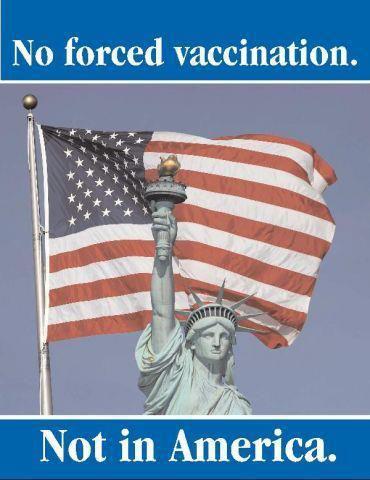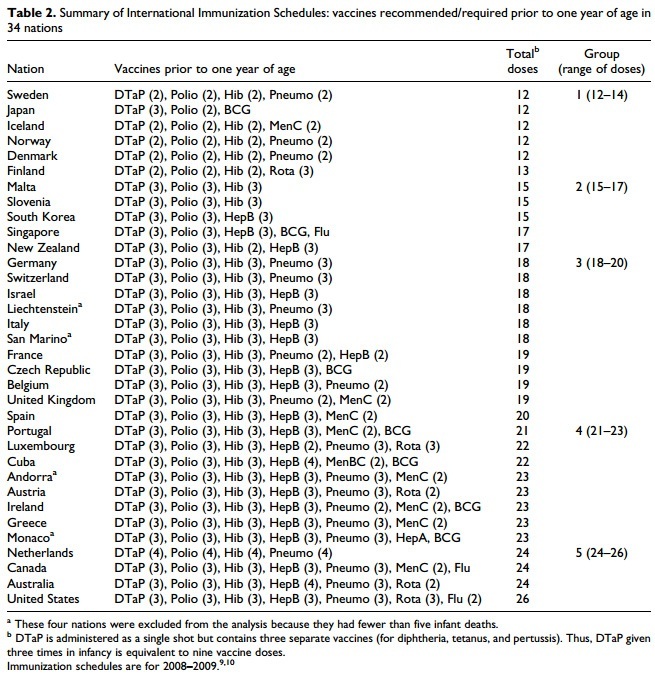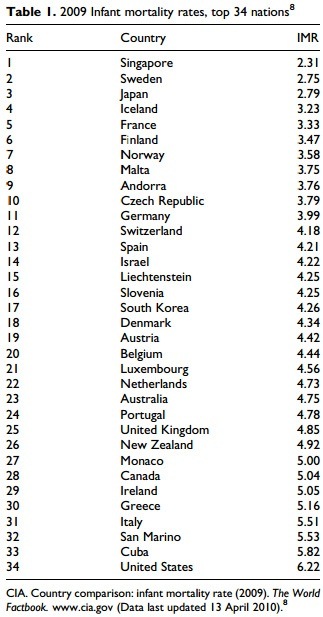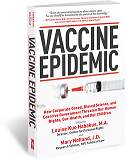
Health Impact News Editor Comments
As Health Impact News has recently reported, there is a national push to remove vaccine exemptions for school-aged children, and new laws and regulations are being proposed all across the U.S. for mandatory vaccinations.
Some of the rhetoric surrounding this push to get vaccine products more distribution in a declining market due to more people waking up to the dangers of vaccines, has bordered on the absurd. Arthur Caplan of the NYU Langone Medical Center, who seems to enjoy the limelight the pro-pharmacy mainstream media willingly shines on him, recently made outrageous statements stating that parents of vaccinated children should sue parents who choose not to vaccinate their children if their vaccinated children end up getting sick. However, more sane voices of reason, such as George Annas, the Department Chair of Health Law and Bioethics at Boston University and bioethics at Boston University, and Sara Rosenbaum, a Health Law and Policy professor at George Washington University, have recently stated that such lawsuits are not ever likely to make their way into civil courts. (See: Why the Vaccine Debate Is Unlikely to Land in the Courtroom – ABC News.)
But what about public health policy? The “vaccines for everybody and force them if we have to” proponents like to quote a Supreme Court decision way back in 1905, Jacobson v. Massachusetts, in Cambridge, Massachusetts, where a certain segment of the population (excluding small children) were required to take a smallpox vaccine or pay a $5 fine, as a justification for mandating vaccinations today against one’s will.
Much has changed since 1905, however. For one thing, WWII and the atrocities by the hands of medical doctors in Nazi Germany have occurred since then, and the Nuremberg tribunals and court trials which the United States played a prominent role used the Nuremberg Code. The Nuremberg Code disallowed experiments on human subjects without their full and informed consent.
Also, the status of vaccines and vaccine injuries in the U.S. legal system changed dramatically in 1986 with the passing of the National Childhood Vaccine Injury Act. Congress gave legal immunity and protection to U.S. pharmaceutical companies who manufacture vaccines. Today, you can no longer sue the manufacturer of a vaccine if you are injured or if someone is killed by that product. You have to fight for compensation in a national Vaccine Court, which to date has paid out billions of dollars in damages, and yet probably only reflects a small percentage of the claims out there. (See: March 2015 Settlements in Vaccine Court: 117 Vaccine Injuries and Deaths.)
So what are the legal challenges to now legislating mandatory vaccinations to a population that no longer has the right to legal redress against the manufacturer of potentially faulty vaccine products that are known to maim and kill people? Is it Constitutional to remove the right to informed consent, and the right to refuse such a product if it is administered by force?
I asked Mary Holland, a research scholar and professor at NYU School of Law to address that question.

Killing the Messenger: U.S. Vaccine Law and Policy
by Mary S. Holland
Health Impact News
Who likes bad news? Nobody, but most of us in our day-to-day lives can’t avoid it. Whether a family member has become ill or a friend has lost a job, we find out, and we have to deal with it.
Not so in U.S. vaccine law and policy. Vaccine injury denial or ‘killing the messenger’ is standard policy. Although touted as safe and effective, vaccines are legally actually “unavoidably unsafe,” like all prescription drugs. While the federal government acknowledges in theory that vaccines can cause injury and death, actual casualties have been neatly tucked under the rug, beyond the scrutiny of almost all courts, medicine and the media.
Law is not the only factor suppressing the truth of vaccine harm – money, media, medicine and politics have all played roles. But law is a central reason for what has gone wrong. Current attempts to strip away state vaccine exemption rights will only kill more messengers, both literally and figuratively.
Why are there Compulsory Vaccination Mandates if Vaccines are “Safe and Effective?”
Why do we have compulsory vaccination mandates in the first place? If vaccines are as safe and effective as we’re told, why aren’t market forces enough?
Refrigerators have certain risks, yet they are a boon to public health, and the overwhelming majority of people have them sans mandates. So too bathrooms and running water. So why are vaccines different? This is a question worth pondering when we think about the significance of opt out rights.
Herd Immunity: A Viable Theory to Justify Mandatory Vaccinations?
The standard comeback is that herd immunity requires as many subjects as possible to participate, and this is only possible with compulsion. The theory of herd immunity comes from naturally-acquired immunity, not vaccine-induced immunity, but it suggests that if the vast majority of people in a population are immune to a disease, then the disease cannot spread. Pro-vaccine advocates use the theory to justify universal vaccination mandates.
The problem with the theory is that it is indeed a theory, and there have been many, many disease outbreaks in highly-vaccinated populations, and even those with 100% uptake. When we see outbreaks like the recent measles case in Disneyland, there are likely other issues involved than simply those pesky unvaccinated children; there are likely problems with vaccine effectiveness, changing viral strains, or simply the reality that vaccines don’t work to achieve immunity in every person.
A Very Limited Legal History of Mandated Vaccines in the U.S.
But taking a step back, mandates started in the U.S. with smallpox epidemics. Smallpox was a deadly, airborne disease. States had different policies on whether it was lawful to compel people to take vaccines to prevent the disease and stop its spread. The smallpox vaccine then as now had a mixed reputation, with many questions about its safety and efficacy.
In 1905, the Supreme Court ultimately ruled that it was within a state’s police powers to compel vaccinations in the context of an infectious disease epidemic. Jacobson v. Massachusetts, now more than one hundred years old, is the bedrock of today’s vaccine laws, although a great deal in the world has changed since then. Cambridge, Massachusetts required that all citizens (but notably not all children because they were considered too vulnerable) take a smallpox vaccine or pay a $5 fine.
Reverend Jacobson objected, as did many others, on the grounds that requiring him to take the injection violated his rights to due process and equal protection under the Constitution. The Supreme Court decided that a duly elected legislature could impose a vaccination mandate, so long as it was necessary, applied to all equally and avoided undue harm.
Thus, Jacobson provides the basis for medical exemptions from vaccine mandates in all 50 states. But the decision did not create religious or philosophical exemptions. Forty-eight states created religious exemptions later in the 19th century, and 19 adopted philosophical ones. In 1922, in Zucht v. King, the Supreme Court upheld a vaccination mandate exclusively for children to be able to attend school, again in the context of smallpox.
Both these decisions are a far cry from today’s recommended childhood vaccine schedule of 70 doses of 16 vaccines by the time a child reaches age 18. Neither of them on their face justify today’s reality. The landmark Jacobson decision requires that there be “an emergency,” “imminent harm,” and a disease that “imperil[s] an entire population.” The Supreme Court even warned that mandates could be so arbitrary and unreasonable that they would force courts to intervene.
1986 National Childhood Vaccine Injury Act: Free Pass for Pharmaceutical Companies
Congress greatly exacerbated the problem of no feedback loop when it passed the 1986 National Childhood Vaccine Injury Act. It passed this Act after the federal Centers for Disease Control and Prevention (CDC) had already started recommending routine vaccines for children. At that time, the CDC was recommending that all children receive the measles, mumps, rubella, polio, diphtheria, tetanus and pertussis vaccines for school admission.
The mass vaccination campaigns caused severe injuries and death to some and led to expensive tort litigation against vaccine manufacturers and doctors. Companies and doctors complained, and manufacturers threatened to leave the marketplace. Congress capitulated, granting almost blanket liability protection to vaccine makers and healthcare professionals who administer vaccines.
I can think of no other product that the government both mandates and indemnifies.
Are Vaccines Safer Today Now that Pharmaceutical Companies Cannot be Sued?
In exchange for its liability-altering statute, Congress created a National Vaccine Injury Compensation Program and committed to make vaccines safer. Neither of these other goals has worked out as Congress intended. The government and industry spend very little money on vaccine safety research. In addition, industry and government have led multi-year campaigns to tarnish and silence messengers with bad news on vaccine safety. Such public vilification serves as a strong deterrent to other would-be vaccine safety researchers.
Under the 1986 Act, victims of injury may not sue a manufacturer or doctor in any court; they must first file in the NVICP within three years. On the upside, one’s lawyer’s fees are paid by the government in the NVICP. On the downside, most people miss the three-year filing deadline because they don’t know the NVICP exists. Ordinary rules of civil procedure and discovery do not apply. There are no juries of one’s peers. And the government has winnowed down the number of litigators willing to work in the forum by contesting their government-paid fees.
Although Congress intended the NVICP to be speedy, non-adversarial and work on the basis of presumed injuries, it is now generally slow, highly contentious, forces 90% of claimants to prove injury and still rejects most claims. Furthermore, while the compensation program decisions themselves make clear that autism, among other maladies, is a vaccine injury, the government refuses to acknowledge this reality.
Closing the feedback loop on bad news a bit further, the Supreme Court in 2011 in Bruesewitz v. Wyeth ruled that no courts may hear claims for defective vaccine designs, unlike for other products. Neither the NVICP nor ordinary courts have the jurisdiction to decide if a vaccine on the market is unreasonably unsafe; only federal regulatory bodies can now second-guess themselves and take vaccines off the market that they put there in the first place. You will not be surprised to know that this has never happened.
Mandated Vaccines Have Increased under Pharmaceutical Legal Protection
So the legal reality today is this: Depending on what state you live in, your state is probably mandating from 30-50 childhood vaccines, some against non-contagious, non-circulating or sexually transmitted diseases.
If your child suffers an adverse reaction after a vaccine, like seizures, paralysis or even death, you may not go to an ordinary court to sue the manufacturer for a defective product or the doctor for malpractice. You must go first to the NVICP and there, almost certainly, try to prove that your child’s injury was due to the vaccine and was not coincidental. Thereafter, you will likely decide that it’s not worth the candle to proceed in civil court because you will have found that proving injury is virtually impossible given the vast numbers of unanswered questions in vaccine safety science.
Informed Consent – Global Standard for Ethical Medicine
So what of informed consent, you say? Isn’t it true that prior, free and informed consent is the global standard for ethical medicine?
Yes, it is.
The legal framework for informed consent has been the norm since the 1920s in the United States and gained ground quickly after World War II when the Nuremberg Code disallowed experiments on human subjects without their full and informed consent. Since then, many international agreements and declarations have broadened human rights protections for informed consent in medical treatment as well as medical experimentation.
If you go for a surgery, you will spend at least an hour filling out informed consent forms. But not so for vaccination, because of Jacobson v. Massachusetts and the 1986 Act. Indeed, you will not be asked to sign anything, and you may or may not even be given a skimpy two-paged Vaccine Information Sheet as the 1986 Act requires.
Vaccine law and policy, given the known safety and efficacy risks, are grossly out of step with informed consent law and practice.
2015 Mickey Mouse Antics: Attacks on Religious and Philosophical Exemptions
To date, the saving grace for those who choose not to vaccinate has been the existence of religious and philosophical exemptions. But in the aftermath of the so-called measles epidemic affecting less than 200 people out of a population of 320 million with no deaths, legislators with industry backing are attacking non-medical exemptions in dozens of states. The National Vaccine Information Center’s Advocacy Portal tracks bills on vaccination; this is the best source of information on what’s happening about exemptions at the state level.
Based on Jacobson alone, the constitution protects only medical exemptions, but that understanding may be outmoded. More recent Supreme Court precedents about other medical procedures, including abortion, euthanasia, sterilization, and forced psychiatric medication, acknowledge that bodily integrity is a fundamental right and that courts must review state interventions with heightened scrutiny.
Furthermore, modern informed consent norms do require that people have the right to refuse vaccination. This is the norm in most countries similar to our own, including the United Kingdom, Canada, Australia, New Zealand and Japan, to name a few. Those countries achieve comparable levels of vaccine uptake as the U.S. but without the same level of coercion. Those countries also have at least as good, if not better, states of public health.
Conclusion: U.S. Vaccine Policy has had Tragic Consequences
The lack of feedback about vaccine injury and lack of accountability for vaccine manufacturers and medical practitioners have had tragic consequences. Precisely how many children have suffered is almost impossible to tell, given the lack of information about injury, medical ignorance and institutional denial. But telling, related statistics include that the U.S. is 34th in the world in infant mortality and that 1 in 2 U.S. children suffers from some chronic condition, be it autism, ADHD, asthma, allergies, or learning disability.
The world was not like this thirty years ago before Congress adopted the 1986 Act. While non-medical exemptions are no panacea, their preservation allows us a semblance of consent in this country. Without them, we will have an unprecedented kind of medical coercion with likely tragic consequences.
It’s time to stop killing the messenger.
Mary Holland is a Research Scholar and teaches at NYU School of Law. She has authored several articles on vaccine law and policy and is a co-editor of the book Vaccine Epidemic: How Corporate Greed, Biased Science and Coercive Government Threaten Our Human Rights, Our Health and Our Children (Skyhorse Publishers).
Vaccine Epidemic
by Louise Kuo Habakus and Mary Holland J.D.
FREE Shipping Available!

Free Shipping Available! Order here.







9 Comments